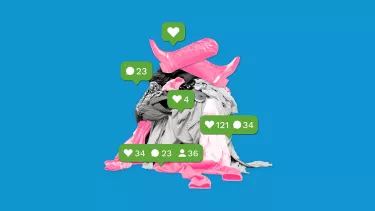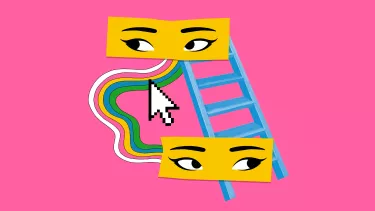10 March 2024
In the Studio
Talks and Ideas
The new ‘Sad Girl Novel’ has officially hit market saturation. Why has the last six years of contemporary fiction been so gripped by this trope - and can the sad girl ever get happy?
Co-curated by Bri Lee
| Date | Time |
| Sunday 10 March 2024 | 10.30am - 11.30am |
| Ticket | Price |
| Standard | $35 |
$8.95 booking fee applies per transaction
Prices correct at the time of publication and subject to change without notice. Exact prices will be displayed with seat selection.
The only authorised ticket agency for this event is Sydney Opera House. For more information about Authorised Agencies, see the frequently asked questions below.
Sydney Opera House Insiders pre-sale
8am, Wednesday 17 January 2024
Become a Sydney Opera House Insider to receive exclusive pre-sale access
What’s On e-newsletter pre-sale
9am, Wednesday 17 January 2024
General Public tickets on-sale
9am, Thursday 18 January 2024
In English
Wheelchair accessible
There are a number of wheelchair and companion seating locations available.
To book accessible seating contact Box Office via email or telephone on:
+61 2 9250 7777 (Monday to Friday, 9am-5pm AEST)
Find out more about accessibility at Sydney Opera House
Run time
This event will run for 60 minutes.
Event duration is a guide only and may be subject to change.
Age
Age guidance: 15+
This event contains adult themes and may include strong language. Children aged 15 years and under must be accompanied by an adult at all times.
Leslie Jamison, The Cult of the Literary Sad Woman, The New York TimesThe superlative embodiment of an alluring silhouette: a woman contoured and whittled by her suffering.
What’s really behind the doom and gloom?
It’s the literary phenomenon that has no end. Every month, a new ‘Sad Girl Novel’ hits the shelves. Privileged young female protagonists are unfulfilled by sex and their careers; they are deep in their thoughts and feelings, complicated, full of self-loathing, and self-absorbed. It’s as if they have landed on some great insight that the rest of us don’t see. (Except perhaps the millions of us who buy these books.) What’s driving this seemingly insatiable appetite? Is it simply that life actually does suck and we know it and, finally, we feel seen? And why does the sad girl attract so much eye-rolling critique? Is this just another way sideline art made by and for women?
Join this panel of practitioners and critics of the trope, who will dig even deeper than the sad girl herself to come to some possibly surprising takes.
Presented by Sydney Opera House
Madeleine Gray (she/her)
Madeleine Gray is a writer and critic from Sydney. She has written for the Times Literary Supplement, The Guardian, BBC, Electric Literature, Sydney Review of Books, and other publications. In 2019, she was a CA-SRB Emerging Critic, and in 2021 she was a finalist for the Pascall Prize for Arts Criticism, a finalist for the Woollahra Digital Literary Non-Fiction Award, and a recipient of a Neilma Sidney Literary Travel Fund grant. She has an MSt in English from the University of Oxford and is a current doctoral candidate at the University of Manchester. Green Dot is her first novel.
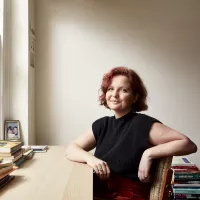
Neha Kale (she/her)
Neha Kale is a widely-published writer. For more than a decade, her criticism, essays, features, and reportage on art, contemporary culture, and society have appeared in many Australian and international publications including The Sydney Morning Herald, The Guardian, ArtReview, Art Guide Australia, SBS, ABC, Vogue, Kill Your Darlings, and more. She currently writes a fortnightly column for The Saturday Paper called The Influence and was formerly the editor and editor-at-large of VAULT magazine.
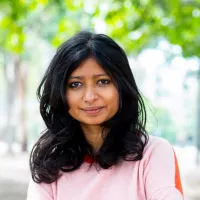
Jessie Tu (she/her)
Jessie Tu is a journalist at Women’s Agenda, and a book critic at The Age and Sydney Morning Herald. Her debut novel, A Lonely Girl is a Dangerous Thing, was released in 2020, winning the Australian Book Industry Awards Literary Fiction Book of the Year. Her second novel, The Honeyeater, is set to be released this July.
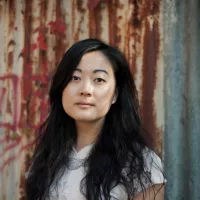
Bridie Jabour (she/her)
Moderator
Bridie Jabour is the co-host of Cool Story with Bri & Bridie. She’s the opinion editor at Guardian Australia and the author of two books. Her latest is the collection of essays Trivial Grievances.
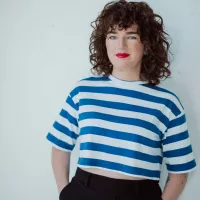
Other information
Venue information
Our foyers will be open 90 minutes pre-show for Concert Hall and Joan Sutherland Theatre performances, and two hours pre-show for Western Foyer venue performances. Refreshments will be available for purchase from our theatre bars.
All Sydney Opera House foyers are pram accessible, with lifts to the main and western foyers. The public lift to all foyers is accessible from the corridor near the escalators on the Lower Concourse and also in the Western Foyer via the corridor on the Ground Level (at the top of the escalators). Pram parking will be available outside the theatres in the Western Foyer.
Getting here
The Sydney Opera House Car Park, operated by Wilson Parking, is open and available to use. Wilson Parking offer discounted parking if you book ahead. Please see the Wilson Parking website for details.
Please check the Transport NSW website for the latest advice and information on travel. You can catch public transport (bus, train, ferry) to Circular Quay and enjoy a 7-10 minute walk to the Opera House.
Covid-safe information
The health and wellbeing of everyone attending the Opera House is our top priority. We’re committed to making your experience safe, comfortable and enjoyable, with a number of measures in place including regular cleaning of high-touch areas, air conditioning systems that maximise ventilation, and hand sanitiser stations positioned in all paths of travel. We remind our audiences and visitors to please stay home if you feel unwell. If you need to discuss your ticketing or booking options, contact our Box Office team on 02 9250 7777.
The health and wellbeing of everyone attending the Opera House is our top priority. We have a number of safety measures in place including regular cleaning of high-touch areas, air conditioning systems that maximise ventilation, and hand sanitiser stations positioned in all paths of travel. While face masks are no longer required, we ask all our patrons and visitors to practise good hygiene.
The Sydney Opera House no longer requires patrons to show that they are fully vaccinated against COVID-19.
Frequently asked questions
Ticket purchases and collection at our Box Office is discouraged and eTicket or postal delivery methods should be used, wherever possible. However, if you are collecting your tickets from the Box Office, we recommend doing this at least 60 minutes before the event starts. If you have already received your tickets, the venue doors will be open 45 minutes pre-show for Joan Sutherland Theatre performances, and 30 minutes pre-show for Western Foyer venue performances. Please take your seats as soon as you arrive.
If you are late, we will seat you as soon as we can and, where possible, in your allocated seat. However, to reduce movement in the venue as well as minimise disruption to the performance and other patrons, ticketholders may be seated in an allocated latecomer’s seat. Please be aware that some events have lock-out periods. In these cases, latecomers will be admitted at a suitable break in the performance. On occasions, this may not be until the interval, or at all where there is no interval.
Details of our right to refuse admission can be found in our General Terms and Conditions for Tickets and Events.
In accordance with our venue security procedures, Opera House security will be scanning and checking bags under the Monumental Stairs, prior to entering the building. Bags will be scanned by an x-ray machine, and staff will wear appropriate personal protective equipment (PPE) when handling your belongings, such as gloves. Cloaking facilities will be open 60 minutes pre-show for Concert Hall and Joan Sutherland Theatre performances, and 60 minutes pre-show for Western Foyer venue performances. However it is strongly encouraged that you travel lightly to minimise contact and queuing. Any bags larger than an A4 piece of paper will need to be checked into the Cloak Room.
The authorised agency for this event is the Sydney Opera House.
Only tickets purchased by authorised agencies should be considered reliable. If you purchase tickets from a non-authorised agency such as Ticketmaster Resale, Viagogo, Ticketbis, eBay, Gumtree, Tickets Australia or any other unauthorised seller, you risk that these tickets are fake, void or have previously been cancelled. Resale restriction applies. For more details, please refer to our General Terms and Conditions for Tickets and Attendance at Events.
Please contact Box Office on +61 2 9250 7777 as soon as possible to advise if you can no longer attend.
Foyers will be open 90 minutes pre-show for Concert Hall and Joan Sutherland Theatre performances, and two hours pre-show for Western Foyer venue performances. Refreshments will be available for purchase from our theatre bars.
The venue doors will be open 45 minutes pre-show for Concert Hall and Joan Sutherland Theatre performances, and 30 minutes pre-show for Western Foyer venue performances.
Please bring a credit or debit card for any on site purchases to enable contactless payment. You’re welcome to bring your own water bottle but no other food and drinks are permitted inside our venues.
The health, safety and wellbeing of everyone at the Sydney Opera House is our top priority. In line with this commitment, the Opera House became a smoke-free site in January 2022. Read our Smoke-free Environment Policy.
You may also like

